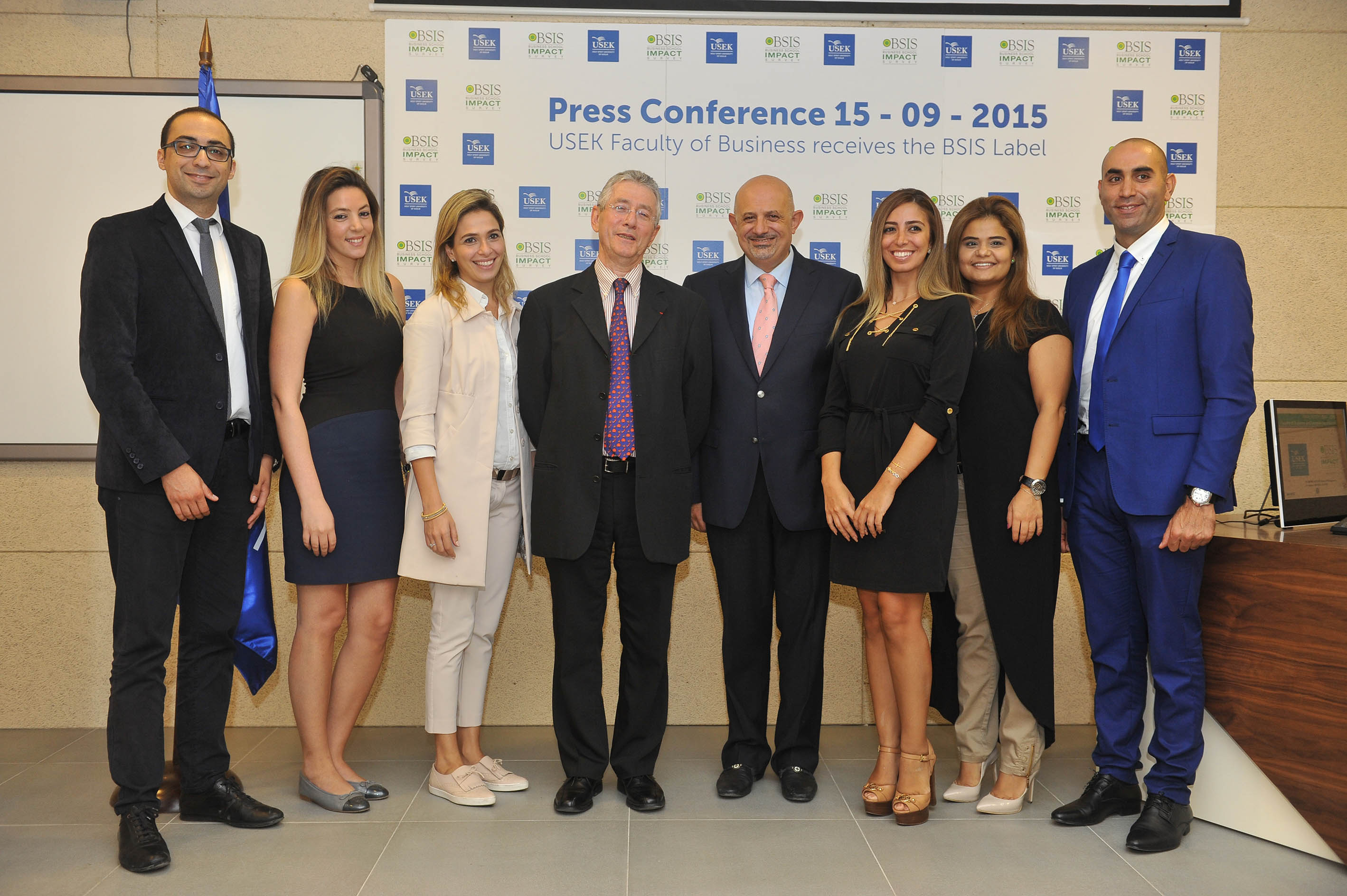During a press conference held at the Holy Spirit University of Kaslik (USEK) on Tuesday September 15, 2015, the university announced that its Faculty of Business was the first in the MENA region to receive the Business School Impact Survey (BSIS) Label.
The Business School Impact Survey (BSIS) scheme is designed to determine the extent of a school’s impact upon its local environment – the city or region in which it is located. The scheme was initially designed by FNEGE (the French National Foundation for Management Education) and is already well established in the French higher education arena.
It is also worth mentioning that the BSIS process has been adapted for an international audience and is now offered in a joint venture between the European Foundation for Management development (EFMD) and FNEGE as a service to EFMD members in any part of the world.
Dr. Lea Yahchouchi, International Relations Chairperson at the School of Business, welcomed the guests and highlighted the importance of the BSIS initiative, with USEK being a pioneer in choosing to measure and evaluate the impact its School produces on the local and regional community.
Prof. Nehme Azoury, Dean of the School of Business, mentioned the challenges that were encountered in order to follow such a distinctive path, since the launching of the process one year ago. He stated: “Lebanon is known for its unique and complex socio-cultural and economical infrastructures; however, endless opportunities arise for those who are willing to think outside the box, to undertake the extra mile and to open up to society.” He also declared that the positive outcomes and results that appear in the Final Evaluation Report have motivated the School to strive to abide by the recommendations issued by the experts’ panel.
The press conference ended by the presentation of the BSIS Final Evaluation report that was delivered by Prof. Michel Kalika, Coordinator of the BSIS EFMD-FNEGE program and Professor at IAE LYON School of management and Université Jean Moulin. In his report, Prof. Kalika underlined the strong regional roots that characterize the School of Business along with its pertinent education mission that is focused on the region. He also qualified the School as being an important resource in support of the development of companies and organizations in the region. The growing research impact of the School and its significant financial contribution to the region were also addressed. Prof. Kalika made sure also to mention USEK’s global responsibility by stating: “As part of its social mission the University is keenly aware of the ethical dimensions of CSR and is active both in raising awareness among staff and students and in taking concrete action to put some of the principles into practice”. He concluded his presentation by enumerating the main recommendations that were issued by the experts to optimize the School’s positive impact on the different aspects and stakeholders of its environment.














